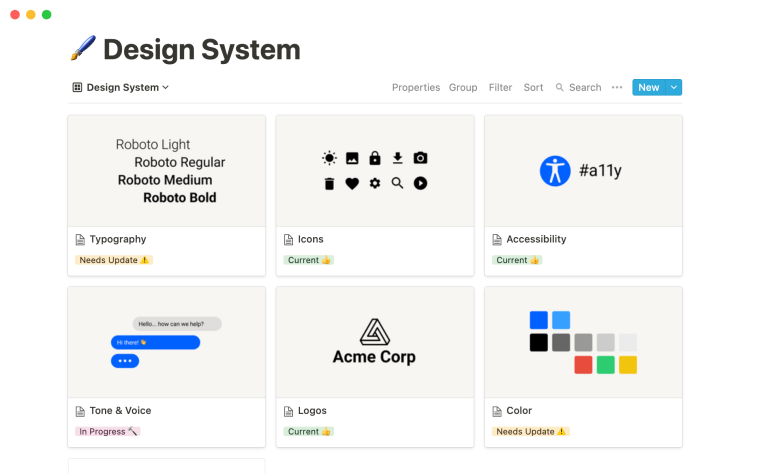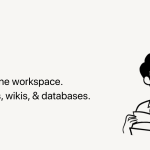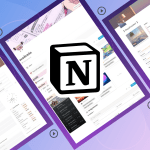Introduction.
Learning is a lifelong journey that allows us to grow, develop new skills, and expand our horizons. With the rise of digital tools and platforms, there are now more innovative ways than ever to enhance our learning experiences.
Notion, a versatile all-in-one workspace, has emerged as a powerful tool for knowledge management and learning.
Its diverse features and customizable interface provide a unique platform for organizing, retaining, and expanding our knowledge base.
In this article, we will explore how to learn with Notion and unlock your educational potential.
Hey there, dear reader! We hope you’re enjoying the content on our blog. Did you know we have a treasure trove of other insightful articles waiting for you?
Checkout the links to the article below to become more productive and scale your Notion experience.
- How To Make Money Selling Notion Templates
- How To Make Money Online With Notion
- How To Make Money With Notion Templates
- How To Become a Notion Consultant
- How To Personalize Notion
- How To Use Notion For Social Media Management
- How To Sell Notion Templates On Etsy
- How To Build a Website On Notion
- How To Build Your Portfolio On Notion
- How To Use Notion For Personal Use
- How To Use Notion For Research
How Do I Learn with Notion?
Notion, a versatile all-in-one workspace, offers a powerful platform that can revolutionize the way you learn and retain knowledge.
By harnessing the features and capabilities of Notion effectively, you can create a personalized learning environment that promotes organization, collaboration, and efficient information retention.
This article serves as a comprehensive guide on how to learn with Notion, empowering you to unleash your educational potential.
Whether you’re a student seeking to excel academically, a professional looking to upskill, or an enthusiastic lifelong learner, Notion provides the tools and flexibility to support your educational journey.
1. Establish Your Learning Hub.
To begin, create a dedicated workspace in Notion specifically for your learning endeavours. This serves as your central hub, where you can organize and access all your learning materials.
Consider structuring it with pages or sections for different subjects, courses, or topics, allowing you to categorize and compartmentalize your learning resources effectively.
2. Curate and Organize Learning Resources.
Notion offers various ways to collect and organize learning resources. Utilize its web clipping feature to save articles, research papers, or blog posts directly into your workspace.
Leverage the bookmarking functionality to store useful websites, videos, or online tutorials. Organize your resources using databases, tags, or folders for easy access and efficient retrieval.
3. Take Effective Notes.
Notion’s note-taking capabilities are invaluable for capturing and retaining information. Create dedicated note pages for each subject or course, allowing you to organize your notes systematically.
Utilize different templates, such as Cornell notes or mind maps, to structure your thoughts and ideas.
Leverage Notion’s rich text editing options to highlight key points, add images, or embed multimedia content.
4. Collaborate and Engage.
Notion’s collaborative features enable you to engage in group learning and foster collaboration. Share your learning pages or databases with classmates, colleagues, or study groups.
Collaborate on projects, exchange ideas, and provide feedback in real time. Leverage comments and mentions to facilitate discussions and enhance the learning experience.
5. Track Progress and Set Goals.
Notion’s powerful database functionality allows you to track your learning progress and set goals. Create databases to monitor your study hours, track completed assignments, or log quiz scores.
Visualize your progress using charts or progress bars to stay motivated and measure your learning achievements.
6. Time Management and Scheduling.
Incorporate Notion’s calendar and task management tools to effectively manage your learning schedule.
Allocate specific time slots for studying, assignments, and exams. Set reminders and notifications to stay on track with your learning goals and deadlines.
7. Reflect and Review.
Regular reflection and review are vital for effective learning. Create reflection pages in Notion to summarize key takeaways, identify areas for improvement, or jot down questions for further exploration. Schedule regular review sessions to reinforce your understanding and enhance long-term retention.
8. Customize Your Learning Environment.
Notion allows you to personalize your learning environment to suit your preferences and learning style.
Experiment with different layouts, templates, and colours to create a visually engaging and motivating space. Adapt and refine your setup as you discover what works best for you.
Conclusion.
Notion provides a powerful and versatile platform for learning and knowledge management. By following the steps outlined in this guide, you can unlock your educational potential and create a personalized learning system tailored to your needs.
Whether you’re a student, a professional, or an avid learner, Notion’s features and flexibility empower you to organize, collaborate, and retain information effectively.
Embrace the possibilities offered by Notion and embark on a transformative learning journey that will fuel your personal and professional growth.
Hey there, dear reader! We hope you’re enjoying the content on our blog. Did you know we have a treasure trove of other insightful articles waiting for you?
Checkout the links to the article below to become more productive and scale your Notion experience.
- How To Make Money Selling Notion Templates
- How To Make Money Online With Notion
- How To Make Money With Notion Templates
- How To Become a Notion Consultant
- How To Personalize Notion
- How To Use Notion For Social Media Management
- How To Sell Notion Templates On Etsy
- How To Build a Website On Notion
- How To Build Your Portfolio On Notion
- How To Use Notion For Personal Use
- How To Use Notion For Research






GIPHY App Key not set. Please check settings